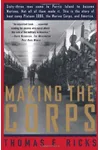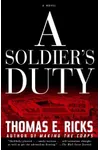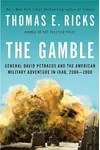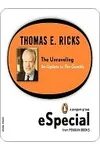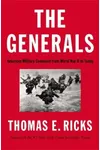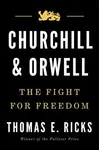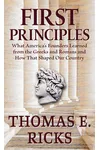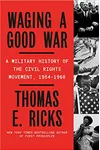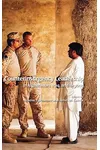Picture a journalist who traded cozy newsrooms for the front lines of global conflicts—meet Thomas E. Ricks! This Pulitzer Prize-winning author and reporter has spent decades unraveling the complexities of U.S. military strategy and foreign policy, turning dense defense topics into gripping narratives. From war zones in Iraq to the pages of bestsellers like Fiasco, Ricks’s work has reshaped how we understand modern warfare.
Born in 1955, Ricks’s unique lens on the world was forged in an unconventional childhood, partly spent in Afghanistan. His blend of on-the-ground reporting and sharp historical insight makes him a standout voice in military journalism, inviting readers to question and explore the stakes of global conflicts.
The Making of Thomas E. Ricks
Thomas Edwin Ricks was born in Beverly, Massachusetts, but his early years took a global turn. Growing up in New York and Afghanistan, where he attended the American International School in Kabul, Ricks developed a curiosity for diverse cultures and complex systems. After graduating from Yale in 1977, he taught English in Hong Kong, but journalism soon called. By the early 1980s, he was reporting for the Wall Street Journal, kicking off a career that would span conflict zones from Somalia to Iraq.
Ricks’s early work wasn’t just about covering battles; it was about understanding the people and policies behind them. His knack for asking tough questions earned him a spot on Pulitzer Prize-winning teams at the Wall Street Journal in 2000 and the Washington Post in 2002, cementing his reputation as a journalist who could make military affairs accessible and urgent.
Thomas E. Ricks’s Unforgettable Stories
Ricks’s books are where his storytelling shines, blending meticulous research with a narrative punch. His 2006 bestseller, Fiasco: The American Military Adventure in Iraq, is a searing account of the Iraq War’s early years, exposing strategic missteps with unflinching clarity. It was a finalist for the Pulitzer Prize and transformed public discourse on the conflict. Its follow-up, The Gamble (2009), dives into General David Petraeus’s surge strategy, showcasing Ricks’s ability to humanize high-stakes decisions.
Beyond Iraq, Ricks’s The Generals (2012) traces the evolution of U.S. military leadership from World War II to today, critiquing the growing gap between performance and accountability. His 2022 book, Waging a Good War, takes a bold turn, framing the civil rights movement as a strategic campaign akin to military operations, highlighting figures like James Lawson and John Lewis. Ricks’s style—direct, vivid, and grounded in primary sources—makes complex histories feel immediate and relevant.
Whether he’s dissecting Pentagon policies or exploring the moral warfare of nonviolent protests, Ricks has a gift for connecting past lessons to present challenges. His work doesn’t just inform; it sparks debate, urging readers to think critically about power and strategy.
Why Thomas E. Ricks Matters
Ricks’s impact goes beyond his books. As a contributing editor at Foreign Policy, where his blog “The Best Defense” won accolades, and a military history columnist for The New York Times Book Review, he’s shaped how policymakers, soldiers, and civilians engage with defense issues. His lectures to military audiences and role at the Center for a New American Security amplify his influence, fostering discussions on civil-military relations and strategic innovation.
By framing historical and social movements through a military lens, Ricks challenges readers to see familiar stories anew. His work reminds us that understanding war—and peace—requires both courage and clarity, making him a vital voice in turbulent times.
About Thomas E. Ricks
- Born: September 25, 1955, in Beverly, Massachusetts
- Key Works: Fiasco, The Gamble, The Generals, Waging a Good War
- Awards: Two-time Pulitzer Prize winner (2000, 2002), Pulitzer Prize finalist (2007)
- Fun Fact: Lived in Afghanistan as a child, shaping his global perspective
Snag Fiasco or Waging a Good War and dive into Thomas E. Ricks’s gripping take on military history and strategy!

